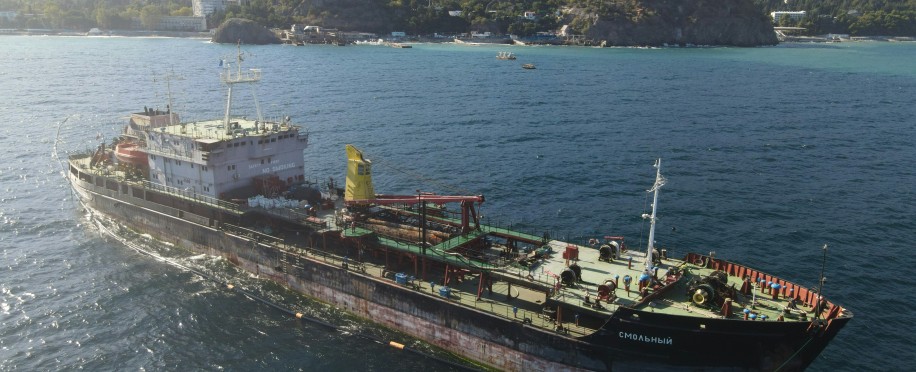Copyright © 2026 lmitac.com All Rights Reserved. Contact - Terms and Conditions - Privacy Policy - Quality Policy - Become an instructor - Vacancies - Sitemap
London Maritime Academy is a trade name for London Premier Groupversion: 2.9.0
London Maritime Academy is a trade name for London Premier Group

Posted on : 11/22/2025, 7:54:19 PM
Last Update : 11/22/2025, 7:54:19 PM
Mariners learn early that oil spill management depends on understanding how oil moves, how fast a spill grows, and how spills respond to tide and wind. Case studies reveal why response shapes environmental recovery and why prevention requires strong management across facilities, vessels, and local operations. These stories show how environmental knowledge, real-time control, and prepared teams determine whether a spill becomes a manageable event or a long-term environment burden.
When Exxon Valdez grounded, oil spread rapidly across freezing waters, transforming the environment and harming coastal habitats. The spill exposed gaps in management, weak oversight, and poor alignment with rule requirements set by governments. Responders faced a race against expanding oil that pushed into sensitive zones. Early response struggled, showing why prevention must guide every plan and why spills require effective coordination centred on safety, health, and long-term resources protection. This incident reshaped expectations for environmental planning, waste handling, and industry responsibility.
The Hebei Spirit spill began with a drifting crane barge striking a tanker at anchor. Heavy oil reached fishing grounds, rural harbours, and local villages. Shorelines needed repeated cleanup and careful control to reduce harm. The case revealed why prevention around anchorages matters, how plans integrate community needs, and why response must support fishermen facing severe impacts on income and resources. Public trust became a critical aspect of management, proving that transparent communication improves preparedness and strengthens protection across marine sectors.
Deepwater Horizon showed how deep-water spills behave differently from surface releases. The spill created plumes shaped by pressure, temperature, and conditions far below the sea surface. Response required subsea engineering, capping systems, and coordinated surface recovery. This case proved that management must adapt quickly, combining chemical approaches, monitoring, and science-based decision-making. It deepened understanding of environmental dynamics and highlighted the emergency value of unified command, strong measures, and multidisciplinary resources that guide recovery and protection efforts in large incidents.
The Enbridge pipeline rupture has introduced responders to submerged oil behaviour. How? Diluted bitumen mixed with sediment, which resulted in forcing dredging and close examination of environmental change in river systems. Moreover, this spill has proved that inland water bodies require their own plans as well as monitoring steps, and specialised response capable of handling both floating residue and hidden layers.
But that was not everything, it also revealed how regulations, epa oversight, and spcc principles influence planning and management in construction corridors, storage zones, and pipeline facilities. The event remains a guide for inland preparedness.
Real spills reshape the industry more than manuals ever will. They show why prevention reduces risks, why early response limits damage, and why management depends on human judgement supported by strong plan design.
Responders learn how oil interacts with terrain, vegetation, and waters shaped by tide and conditions. They study how spills can enter wetlands, how harm expands when control lines fail, and how waste increases when countermeasure actions arrive late, producing economic costs. Each incident strengthens preparedness and refines measures that minimize long-term impact.
Modern teams rely on science to study plume movement, shoreline absorption, and ecosystem strain. Case studies feed national regulatory updates, influence compliance codes such as CFR, and shape applicability guidelines for government offices safeguarding public interest.
They also help planners identify key weaknesses so each company can develop more comprehensive processes aligned with regulated expectations.

Major spills impact workers across sectors, including petroleum, logistics, construction, and material transport. Oil Spill Management courses in Kuala Lumpur strengthen workers who face difficult emergencies and teaches them how to read characteristics of each spill, maintain safety, avoid health exposure, and support responders during coordinated effort. Inland, coastal, and offshore teams learn how to handle products, track pollution, and ensure that natural habitats remain protected during recovery.
Training builds confidence, improves response, and reinforces the idea that oil spill management depends on planning, coordination, and decisive leadership. Strong programmes teach how to implement shoreline assessments, apply protection barriers, and strengthen control actions that reduce spill volume before it exceeds containment capacity. They also highlight step analysis, modelling, and the role of incident command.
This kind of education prepares responders to act swiftly during emergency situations and across national frameworks. It helps them recognize when environment strain grows, how to handle waste, and why mitigate strategies shape long-term stability. Good training also reflects market change, evolving code practices, and the rising cost of financial loss from catastrophic events that test a company's resilience.
London Maritime Academy (LMA) Training delivers internationally accredited programmes across major global hubs. Professionals in London, Dubai, Barcelona, Athens, Istanbul, Kuala Lumpur, Singapore, and Amsterdam gain access to advanced courses designed to refine command decisions, strengthen control, widen environmental awareness, and deepen spill-specific leadership. Courses are built around international best practice, supported by office guidance tools, and influenced by real lessons studied across Canada, ospr research bodies, and teams like Enbridge operating across diverse regions.
Each course covers analysis of oil, shoreline tension, crew coordination, inland pathways where spills occur, and how responders protect waters through coordinated intervention. Trainees sharpen their ability to respond, maintain safety, safeguard resources, and stabilise marine environments during high-pressure times.
Every spill teaches. Every spill leaves insights that strengthen oil spill management. With strong planning, improved response, disciplined control, and deep respect for the environment, organisations build capacity that lasts. The sea remembers careless mistakes — but trained teams ensure they are not repeated.